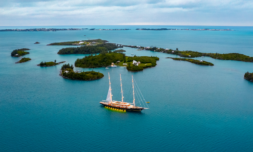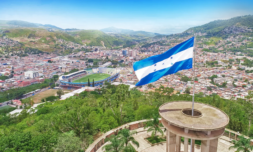A little over a year has passed since Russia first invaded Ukraine. Now the International Criminal Court has issued an arrest warrant for Vladimir Putin for his alleged war crimes.
The international criminal court has just issued arrest warrants for Vladimir Putin and his children’s rights commissioner, Maria Alekseyevna Lvova-Belova.
Both leading parties have been accused of the unlawful deportation of Ukrainian children throughout the war, which has been going on for over one year.
Judges in the court’s pre-trial assessment have said they have ‘reasonable grounds to believe that each suspect bears responsibility for the war crime of unlawful deportation of the [Ukrainian] population.’
They continued with the allegations, stating that Putin and Lvova-Belova had authorised the ‘unlawful transfer of populations from occupied areas of Ukraine to the Russian Federation, in prejudice of Ukrainian children.’
Moscow has already responded to the ICC’s action in a way that is totally on-brand for Russia, as Putin has seemed to believe he is above the law on many occasions. Russian officials stated that the country does not recognise the jurisdiction of the International Criminal Court, which is located in The Hague.
Russia’s foreign ministry spokesperson, Maria Zakharova, announced on Telegram: ‘The decisions of the international criminal court have no meaning for our country, including from a legal point of view. Russia is not a party to the Rome Statute of the ICC and bears no obligations under it.’
We will have to wait and see how those beliefs hold up in the coming days.





















